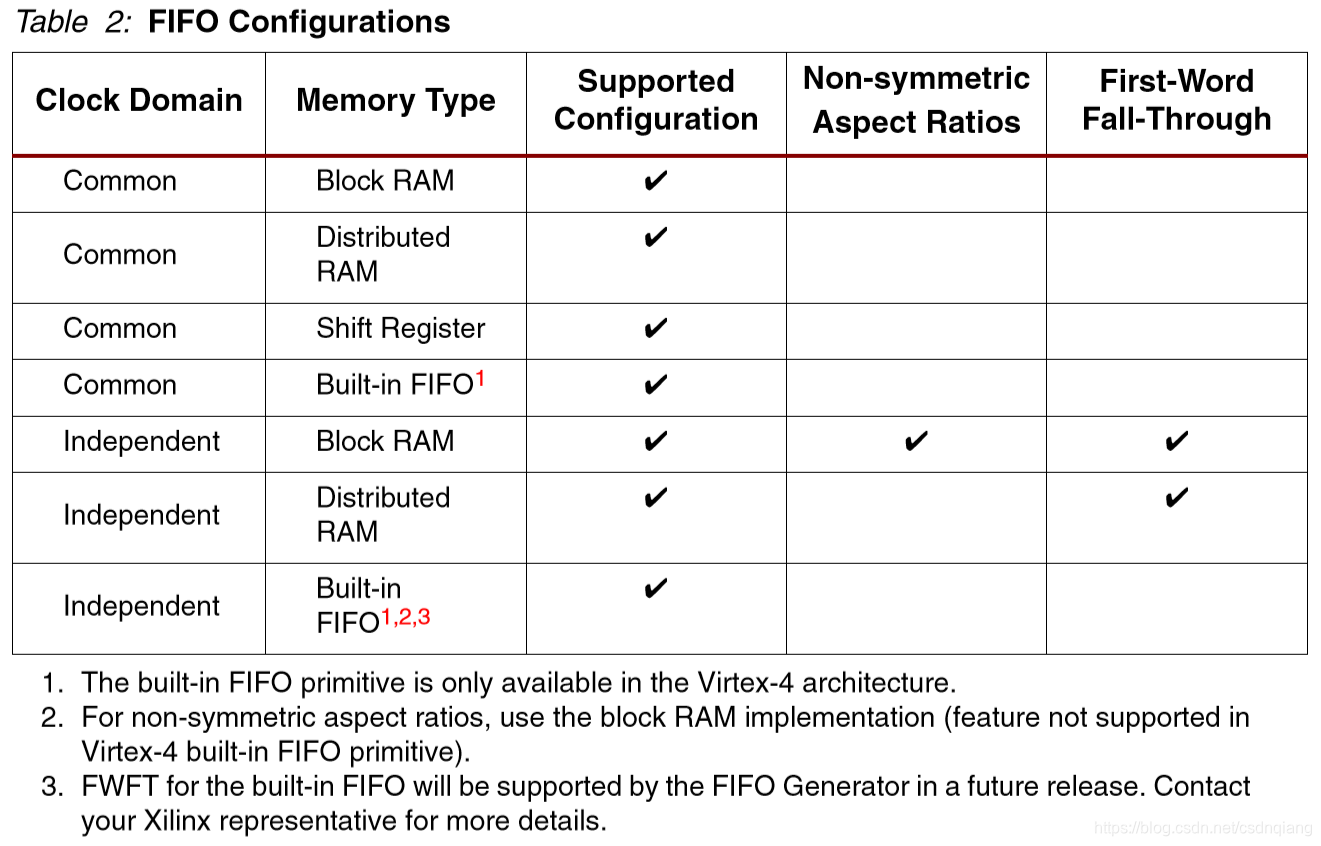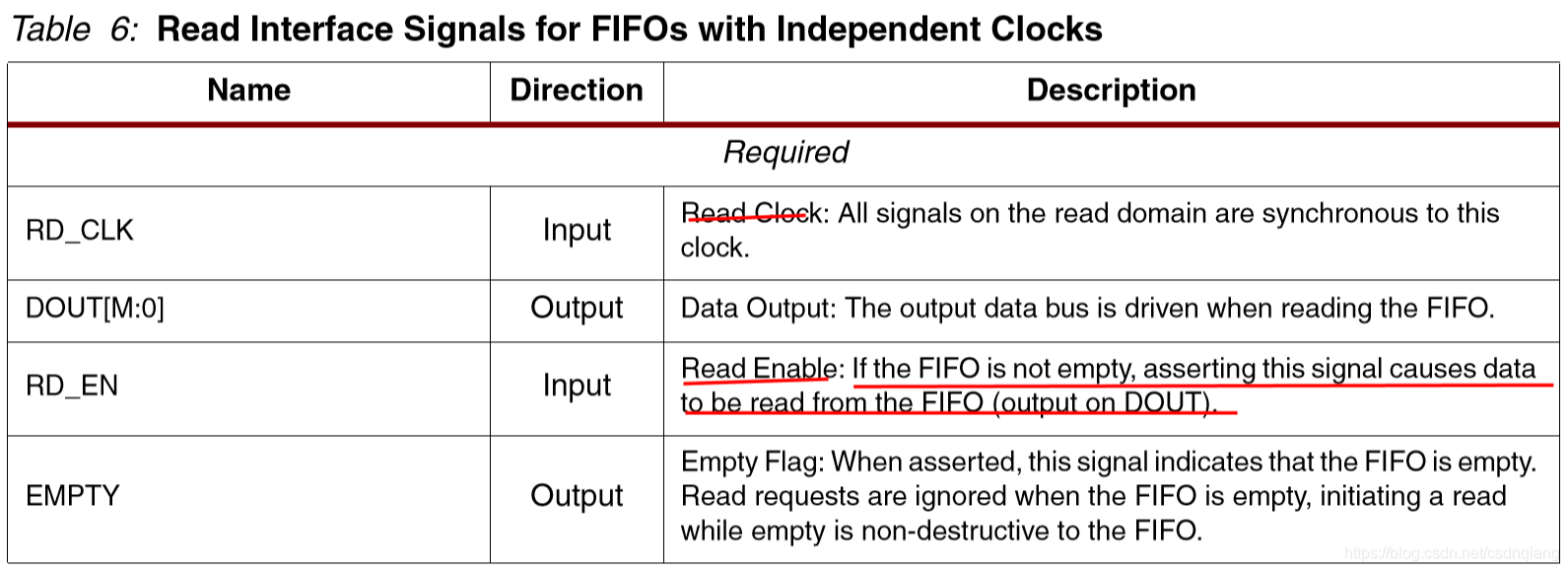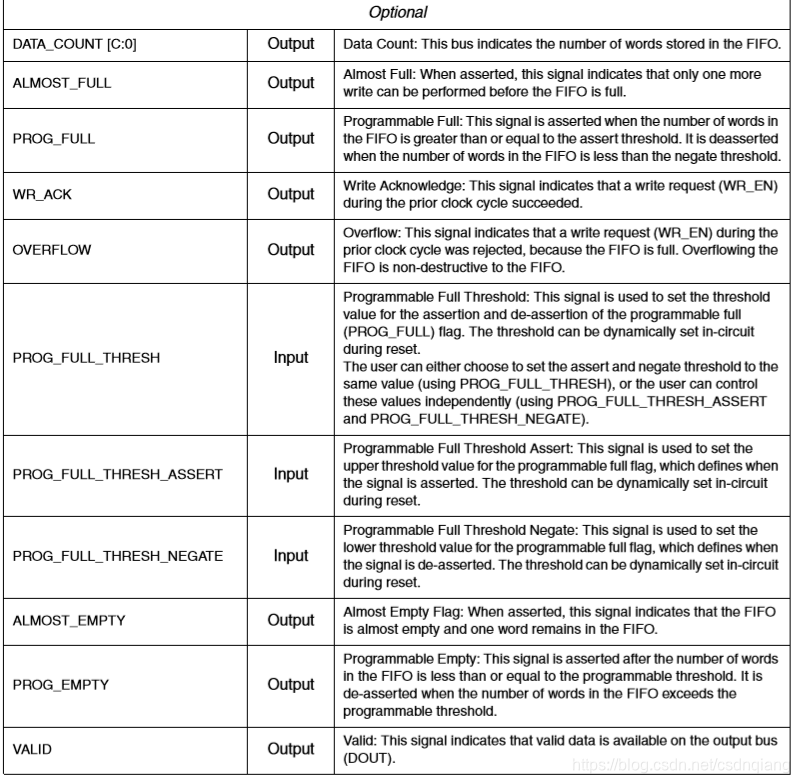分析以下代码可能存在的问题。// TsToMp4Converter.cpp : 此文件包含 "main" 函数。程序执行将在此处开始并结束。
//
extern "C" {
#include <libavcodec/avcodec.h>
#include <libavformat/avformat.h>
#include <libavfilter/buffersink.h>
#include <libavfilter/buffersrc.h>
#include <libavutil/audio_fifo.h>
#include <libavutil/avassert.h>
#include <libavutil/avstring.h>
#include <libavutil/frame.h>
#include <libavutil/opt.h>
#include <libswresample/swresample.h>
#include <libavutil/audio_fifo.h>
}
#if defined(_MSC_VER)
static char av_error[AV_ERROR_MAX_STRING_SIZE] = { 0 };
#define av_err2str(errnum) \
av_make_error_string(av_error, AV_ERROR_MAX_STRING_SIZE, errnum)
#elif
#define av_err2str(errnum) \
av_make_error_string((char[AV_ERROR_MAX_STRING_SIZE]){0}, AV_ERROR_MAX_STRING_SIZE, errnum)
#endif
static AVFormatContext* ifmt_ctx;
static AVFormatContext* ofmt_ctx;
typedef struct FilteringContext {
AVFilterContext* buffersink_ctx;
AVFilterContext* buffersrc_ctx;
AVFilterGraph* filter_graph;
AVPacket* enc_pkt;
AVFrame* filtered_frame;
} FilteringContext;
static FilteringContext* filter_ctx;
typedef struct StreamContext {
AVCodecContext* dec_ctx;
AVCodecContext* enc_ctx;
AVFrame* dec_frame;
} StreamContext;
static StreamContext* stream_ctx;
static int audio_index = -1;
static int video_index = -1;
static int64_t current_audio_pts = 0; //重采样时,会有缓存,这时候要另外计算dts和pts
static int64_t first_video_pts = 0;
static AVAudioFifo* fifo = NULL; //重采样时,如果输入nb_sample比输出的nb_sample小时,需要缓存
//#define SAVE_AUDIO_FILE
#ifdef SAVE_AUDIO_FILE
static FILE* save_audio = fopen("d:\\sampler\\1.pcm", "w+b");
static void save_audio_data(AVFrame* frame)
{
int data_size = av_get_bytes_per_sample(stream_ctx[audio_index].enc_ctx->sample_fmt);
if (data_size >= 0) {
for (int i = 0; i < frame->nb_samples; i++)
for (int ch = 0; ch < stream_ctx[audio_index].enc_ctx->channels; ch++)
fwrite(frame->data[ch] + data_size * i, 1, data_size, save_audio);
}
}
#endif
static int open_input_file(const char* filename)
{
int ret;
unsigned int i;
ifmt_ctx = NULL;
/**(解封装 1.1):创建并初始化AVFormatContext*/
if ((ret = avformat_open_input(&ifmt_ctx, filename, NULL, NULL)) < 0) {
av_log(NULL, AV_LOG_ERROR, "Cannot open input file\n");
return ret;
}
/**(解封装 1.2):检索流信息,这个过程会检查输入流中信息是否存在异常*/
if ((ret = avformat_find_stream_info(ifmt_ctx, NULL)) < 0) {
av_log(NULL, AV_LOG_ERROR, "Cannot find stream information\n");
return ret;
}
stream_ctx = (StreamContext*)av_mallocz_array(ifmt_ctx->nb_streams, sizeof(*stream_ctx));
if (!stream_ctx)
return AVERROR(ENOMEM);
for (i = 0; i < ifmt_ctx->nb_streams; i++) {
AVStream* stream = ifmt_ctx->streams[i];
/**(解码 2.1):查找解码器(AVCodec)*/
AVCodec* dec = avcodec_find_decoder(stream->codecpar->codec_id);
AVCodecContext* codec_ctx;
if (!dec) {
av_log(NULL, AV_LOG_ERROR, "Failed to find decoder for stream #%u\n", i);
return AVERROR_DECODER_NOT_FOUND;
}
/**(解码 2.2):通过解码器(AVCodec)生成解码器上下文(AVCodecContext)*/
codec_ctx = avcodec_alloc_context3(dec);
if (!codec_ctx) {
av_log(NULL, AV_LOG_ERROR, "Failed to allocate the decoder context for stream #%u\n", i);
return AVERROR(ENOMEM);
}
/**(解码 2.3):将AVCodecParameters参数赋值给AVCodecContext*/
ret = avcodec_parameters_to_context(codec_ctx, stream->codecpar);
if (ret < 0) {
av_log(NULL, AV_LOG_ERROR, "Failed to copy decoder parameters to input decoder context "
"for stream #%u\n", i);
return ret;
}
/* Reencode video & audio and remux subtitles etc. */
if (codec_ctx->codec_type == AVMEDIA_TYPE_VIDEO
|| codec_ctx->codec_type == AVMEDIA_TYPE_AUDIO) {
if (codec_ctx->codec_type == AVMEDIA_TYPE_VIDEO){
codec_ctx->framerate = av_guess_frame_rate(ifmt_ctx, stream, NULL);
video_index = i;
}
else {
audio_index = i;
}
/* Open decoder */
/**(解码 2.4):初始化码器器上下文*/
ret = avcodec_open2(codec_ctx, dec, NULL);
if (ret < 0) {
av_log(NULL, AV_LOG_ERROR, "Failed to open decoder for stream #%u\n", i);
return ret;
}
}
//保存解码上下文
stream_ctx[i].dec_ctx = codec_ctx;
//分配解码帧
stream_ctx[i].dec_frame = av_frame_alloc();
if (!stream_ctx[i].dec_frame)
return AVERROR(ENOMEM);
}
av_dump_format(ifmt_ctx, 0, filename, 0);
return 0;
}
static int open_output_file(const char* filename)
{
AVStream* out_stream;
AVStream* in_stream;
AVCodecContext* dec_ctx, * enc_ctx;
AVCodec* encoder;
int ret;
unsigned int i;
ofmt_ctx = NULL;
/**(封装 4.1):根据文件格式初始化封装器上下文AVFormatContext*/
avformat_alloc_output_context2(&ofmt_ctx, NULL, NULL, filename);
if (!ofmt_ctx) {
av_log(NULL, AV_LOG_ERROR, "Could not create output context\n");
return AVERROR_UNKNOWN;
}
for (i = 0; i < ifmt_ctx->nb_streams; i++) {
/**(封装 4.2):创建输出视频和音频AVStream*/
out_stream = avformat_new_stream(ofmt_ctx, NULL);
if (!out_stream) {
av_log(NULL, AV_LOG_ERROR, "Failed allocating output stream\n");
return AVERROR_UNKNOWN;
}
in_stream = ifmt_ctx->streams[i];
dec_ctx = stream_ctx[i].dec_ctx;
if (dec_ctx->codec_type == AVMEDIA_TYPE_VIDEO
|| dec_ctx->codec_type == AVMEDIA_TYPE_AUDIO) {
/* in this example, we choose transcoding to same codec */
/**(编码 3.1):获取对应的编码器AVCodec*/
#if 0
encoder = avcodec_find_encoder(dec_ctx->codec_id);
#else
if (dec_ctx->codec_type == AVMEDIA_TYPE_VIDEO)
{
encoder = avcodec_find_encoder(AV_CODEC_ID_H264);
}
else
{
encoder = avcodec_find_encoder(AV_CODEC_ID_AAC);
}
#endif
if (!encoder) {
av_log(NULL, AV_LOG_FATAL, "Necessary encoder not found\n");
return AVERROR_INVALIDDATA;
}
/**(编码 3.2):通过编码器(AVCodec)获取编码器上下文(AVCodecContext)*/
enc_ctx = avcodec_alloc_context3(encoder);
if (!enc_ctx) {
av_log(NULL, AV_LOG_FATAL, "Failed to allocate the encoder context\n");
return AVERROR(ENOMEM);
}
/**给编码器初始化信息*/
/* In this example, we transcode to same properties (picture size,
* sample rate etc.). These properties can be changed for output
* streams easily using filters */
if (dec_ctx->codec_type == AVMEDIA_TYPE_VIDEO) {
enc_ctx->height = dec_ctx->height;
enc_ctx->width = dec_ctx->width;
enc_ctx->sample_aspect_ratio = dec_ctx->sample_aspect_ratio;
/* take first format from list of supported formats */
if (encoder->pix_fmts)
enc_ctx->pix_fmt = encoder->pix_fmts[0];
else
enc_ctx->pix_fmt = dec_ctx->pix_fmt;
/* video time_base can be set to whatever is handy and supported by encoder */
#if 0
enc_ctx->time_base = av_inv_q(dec_ctx->framerate);
#else
enc_ctx->time_base = dec_ctx->time_base;
enc_ctx->has_b_frames = dec_ctx->has_b_frames;
//输出将相对于输入延迟max_b_frames + 1-->但是输入的为0!
//enc_ctx->max_b_frames = dec_ctx->max_b_frames + 1;
enc_ctx->max_b_frames = 2;
enc_ctx->bit_rate = dec_ctx->bit_rate;
enc_ctx->codec_type = dec_ctx->codec_type;
// 禁用B帧
if (enc_ctx->max_b_frames &&
enc_ctx->codec_id != AV_CODEC_ID_MPEG4 &&
enc_ctx->codec_id != AV_CODEC_ID_MPEG1VIDEO &&
enc_ctx->codec_id != AV_CODEC_ID_MPEG2VIDEO) {
enc_ctx->has_b_frames = 0;
enc_ctx->max_b_frames = 0;
}
#endif
}
else {
enc_ctx->sample_rate = dec_ctx->sample_rate;
enc_ctx->channel_layout = dec_ctx->channel_layout;
enc_ctx->channels = av_get_channel_layout_nb_channels(enc_ctx->channel_layout);
/* take first format from list of supported formats */
enc_ctx->sample_fmt = encoder->sample_fmts[0];
enc_ctx->time_base = { 1, enc_ctx->sample_rate };
enc_ctx->bit_rate = dec_ctx->bit_rate;
enc_ctx->codec_type = dec_ctx->codec_type;
//enc_ctx->strict_std_compliance = FF_COMPLIANCE_EXPERIMENTAL;
}
if (ofmt_ctx->oformat->flags & AVFMT_GLOBALHEADER)
enc_ctx->flags |= AV_CODEC_FLAG_GLOBAL_HEADER;
/**(编码 3.3):*/
/* Third parameter can be used to pass settings to encoder */
ret = avcodec_open2(enc_ctx, encoder, NULL);
if (ret < 0) {
av_log(NULL, AV_LOG_ERROR, "Cannot open video encoder for stream #%u\n", i);
return ret;
}
/**(编码 3.4):*/
ret = avcodec_parameters_from_context(out_stream->codecpar, enc_ctx);
if (ret < 0) {
av_log(NULL, AV_LOG_ERROR, "Failed to copy encoder parameters to output stream #%u\n", i);
return ret;
}
out_stream->time_base = enc_ctx->time_base;
//保存编码上下文
stream_ctx[i].enc_ctx = enc_ctx;
}
else if (dec_ctx->codec_type == AVMEDIA_TYPE_UNKNOWN) {
av_log(NULL, AV_LOG_FATAL, "Elementary stream #%d is of unknown type, cannot proceed\n", i);
return AVERROR_INVALIDDATA;
}
else {
/* if this stream must be remuxed */
ret = avcodec_parameters_copy(out_stream->codecpar, in_stream->codecpar);
if (ret < 0) {
av_log(NULL, AV_LOG_ERROR, "Copying parameters for stream #%u failed\n", i);
return ret;
}
out_stream->time_base = in_stream->time_base;
}
}
av_dump_format(ofmt_ctx, 0, filename, 1);
/**(封装 4.4):初始化AVIOContext*/
if (!(ofmt_ctx->oformat->flags & AVFMT_NOFILE)) {
ret = avio_open(&ofmt_ctx->pb, filename, AVIO_FLAG_WRITE);
if (ret < 0) {
av_log(NULL, AV_LOG_ERROR, "Could not open output file '%s'", filename);
return ret;
}
}
/**(封装 4.5):写入文件头*/
/* init muxer, write output file header */
ret = avformat_write_header(ofmt_ctx, NULL);
if (ret < 0) {
av_log(NULL, AV_LOG_ERROR, "Error occurred when opening output file\n");
return ret;
}
return 0;
}
static int init_fifo(AVAudioFifo** fifo, AVCodecContext* output_codec_context)
{
/* Create the FIFO buffer based on the specified output sample format. */
if (!(*fifo = av_audio_fifo_alloc(output_codec_context->sample_fmt,
output_codec_context->channels, 1))) {
fprintf(stderr, "Could not allocate FIFO\n");
return AVERROR(ENOMEM);
}
return 0;
}
static int init_filter(FilteringContext* fctx, AVCodecContext* dec_ctx,
AVCodecContext* enc_ctx, const char* filter_spec)
{
char args[512];
int ret = 0;
const AVFilter* buffersrc = NULL;
const AVFilter* buffersink = NULL;
AVFilterContext* buffersrc_ctx = NULL;
AVFilterContext* buffersink_ctx = NULL;
AVFilterInOut* outputs = avfilter_inout_alloc();
AVFilterInOut* inputs = avfilter_inout_alloc();
AVFilterGraph* filter_graph = avfilter_graph_alloc();
if (!outputs || !inputs || !filter_graph) {
ret = AVERROR(ENOMEM);
goto end;
}
if (dec_ctx->codec_type == AVMEDIA_TYPE_VIDEO) {
/**(滤镜 6.1):获取输入和输出滤镜器【同音频】*/
buffersrc = avfilter_get_by_name("buffer");
buffersink = avfilter_get_by_name("buffersink");
if (!buffersrc || !buffersink) {
av_log(NULL, AV_LOG_ERROR, "filtering source or sink element not found\n");
ret = AVERROR_UNKNOWN;
goto end;
}
snprintf(args, sizeof(args),
"video_size=%dx%d:pix_fmt=%d:time_base=%d/%d:pixel_aspect=%d/%d",
dec_ctx->width, dec_ctx->height, dec_ctx->pix_fmt,
dec_ctx->time_base.num, dec_ctx->time_base.den,
dec_ctx->sample_aspect_ratio.num,
dec_ctx->sample_aspect_ratio.den);
/**(滤镜 6.2):创建和初始化输入和输出过滤器实例并将其添加到现有图形中*/
ret = avfilter_graph_create_filter(&buffersrc_ctx, buffersrc, "in",
args, NULL, filter_graph);
if (ret < 0) {
av_log(NULL, AV_LOG_ERROR, "Cannot create buffer source\n");
goto end;
}
ret = avfilter_graph_create_filter(&buffersink_ctx, buffersink, "out",
NULL, NULL, filter_graph);
if (ret < 0) {
av_log(NULL, AV_LOG_ERROR, "Cannot create buffer sink\n");
goto end;
}
/**(滤镜 6.3):给【输出】滤镜器上下文设置参数*/
ret = av_opt_set_bin(buffersink_ctx, "pix_fmts",
(uint8_t*)&enc_ctx->pix_fmt, sizeof(enc_ctx->pix_fmt),
AV_OPT_SEARCH_CHILDREN);
if (ret < 0) {
av_log(NULL, AV_LOG_ERROR, "Cannot set output pixel format\n");
goto end;
}
}
else if (dec_ctx->codec_type == AVMEDIA_TYPE_AUDIO) {
buffersrc = avfilter_get_by_name("abuffer");
buffersink = avfilter_get_by_name("abuffersink");
if (!buffersrc || !buffersink) {
av_log(NULL, AV_LOG_ERROR, "filtering source or sink element not found\n");
ret = AVERROR_UNKNOWN;
goto end;
}
if (!dec_ctx->channel_layout)
dec_ctx->channel_layout =
av_get_default_channel_layout(dec_ctx->channels);
snprintf(args, sizeof(args),
"time_base=%d/%d:sample_rate=%d:sample_fmt=%s:channel_layout=0x%x",
dec_ctx->time_base.num, dec_ctx->time_base.den, dec_ctx->sample_rate,
av_get_sample_fmt_name(dec_ctx->sample_fmt),
(int)dec_ctx->channel_layout);
ret = avfilter_graph_create_filter(&buffersrc_ctx, buffersrc, "in",
args, NULL, filter_graph);
if (ret < 0) {
av_log(NULL, AV_LOG_ERROR, "Cannot create audio buffer source\n");
goto end;
}
ret = avfilter_graph_create_filter(&buffersink_ctx, buffersink, "out",
NULL, NULL, filter_graph);
if (ret < 0) {
av_log(NULL, AV_LOG_ERROR, "Cannot create audio buffer sink\n");
goto end;
}
ret = av_opt_set_bin(buffersink_ctx, "sample_fmts",
(uint8_t*)&enc_ctx->sample_fmt, sizeof(enc_ctx->sample_fmt),
AV_OPT_SEARCH_CHILDREN);
if (ret < 0) {
av_log(NULL, AV_LOG_ERROR, "Cannot set output sample format\n");
goto end;
}
ret = av_opt_set_bin(buffersink_ctx, "channel_layouts",
(uint8_t*)&enc_ctx->channel_layout,
sizeof(enc_ctx->channel_layout), AV_OPT_SEARCH_CHILDREN);
if (ret < 0) {
av_log(NULL, AV_LOG_ERROR, "Cannot set output channel layout\n");
goto end;
}
ret = av_opt_set_bin(buffersink_ctx, "sample_rates",
(uint8_t*)&enc_ctx->sample_rate, sizeof(enc_ctx->sample_rate),
AV_OPT_SEARCH_CHILDREN);
if (ret < 0) {
av_log(NULL, AV_LOG_ERROR, "Cannot set output sample rate\n");
goto end;
}
}
else {
ret = AVERROR_UNKNOWN;
goto end;
}
//绑定关系 in ——> buffersrc_ctx
/* Endpoints for the filter graph. */
outputs->name = av_strdup("in");
outputs->filter_ctx = buffersrc_ctx;
outputs->pad_idx = 0;
outputs->next = NULL;
//绑定关系 out ——> buffersink_ctx
inputs->name = av_strdup("out");
inputs->filter_ctx = buffersink_ctx;
inputs->pad_idx = 0;
inputs->next = NULL;
if (!outputs->name || !inputs->name) {
ret = AVERROR(ENOMEM);
goto end;
}
/**(滤镜 6.4):将字符串描述的图形添加到图形中*/
if ((ret = avfilter_graph_parse_ptr(filter_graph, filter_spec,
&inputs, &outputs, NULL)) < 0)
goto end;
/**(滤镜 6.5):检查AVFilterGraph有效性*/
if ((ret = avfilter_graph_config(filter_graph, NULL)) < 0)
goto end;
/* Fill FilteringContext */
fctx->buffersrc_ctx = buffersrc_ctx;
fctx->buffersink_ctx = buffersink_ctx;
fctx->filter_graph = filter_graph;
end:
avfilter_inout_free(&inputs);
avfilter_inout_free(&outputs);
return ret;
}
static int init_filters(void)
{
const char* filter_spec;
unsigned int i;
int ret;
filter_ctx = (FilteringContext*)av_malloc_array(ifmt_ctx->nb_streams, sizeof(*filter_ctx));
if (!filter_ctx)
return AVERROR(ENOMEM);
//这里会根据音频和视频的stream_index创建对应的filter_stm组
for (i = 0; i < ifmt_ctx->nb_streams; i++) {
filter_ctx[i].buffersrc_ctx = NULL;
filter_ctx[i].buffersink_ctx = NULL;
filter_ctx[i].filter_graph = NULL;
if (!(ifmt_ctx->streams[i]->codecpar->codec_type == AVMEDIA_TYPE_AUDIO
|| ifmt_ctx->streams[i]->codecpar->codec_type == AVMEDIA_TYPE_VIDEO))
continue;
if (ifmt_ctx->streams[i]->codecpar->codec_type == AVMEDIA_TYPE_VIDEO)
filter_spec = "null"; /* passthrough (dummy) filter for video */
else
filter_spec = "anull"; /* passthrough (dummy) filter for audio */
ret = init_filter(&filter_ctx[i], stream_ctx[i].dec_ctx,
stream_ctx[i].enc_ctx, filter_spec);
if (ret)
return ret;
filter_ctx[i].enc_pkt = av_packet_alloc();
if (!filter_ctx[i].enc_pkt)
return AVERROR(ENOMEM);
filter_ctx[i].filtered_frame = av_frame_alloc();
if (!filter_ctx[i].filtered_frame)
return AVERROR(ENOMEM);
}
return 0;
}
static int add_samples_to_fifo(AVAudioFifo* fifo,
uint8_t** converted_input_samples,
const int frame_size)
{
int error = 0;
/* Make the FIFO as large as it needs to be to hold both,
* the old and the new samples. */
if ((error = av_audio_fifo_realloc(fifo, av_audio_fifo_size(fifo) + frame_size)) < 0) {
fprintf(stderr, "Could not reallocate FIFO\n");
return error;
}
/* Store the new samples in the FIFO buffer. */
if (av_audio_fifo_write(fifo, (void**)converted_input_samples,
frame_size) < frame_size) {
fprintf(stderr, "Could not write data to FIFO\n");
return AVERROR_EXIT;
}
return 0;
}
static int store_audio(
AVAudioFifo* fifo,
const AVFrame* input_frame)
{
int ret = 0;
/* Add the converted input samples to the FIFO buffer for later processing. */
// 写入FIFO缓冲区
ret = add_samples_to_fifo(
fifo, (uint8_t**)input_frame->data,
input_frame->nb_samples);
return ret;
}
static int init_output_frame(AVFrame** frame,
AVCodecContext* output_codec_context,
int frame_size)
{
int error;
/* Create a new frame to store the audio samples. */
if (!(*frame = av_frame_alloc())) {
fprintf(stderr, "Could not allocate output frame\n");
return AVERROR_EXIT;
}
/* Set the frame's parameters, especially its size and format.
* av_frame_get_buffer needs this to allocate memory for the
* audio samples of the frame.
* Default channel layouts based on the number of channels
* are assumed for simplicity. */
(*frame)->nb_samples = frame_size;
(*frame)->channel_layout = output_codec_context->channel_layout;
(*frame)->format = output_codec_context->sample_fmt;
(*frame)->sample_rate = output_codec_context->sample_rate;
/* Allocate the samples of the created frame. This call will make
* sure that the audio frame can hold as many samples as specified. */
if ((error = av_frame_get_buffer(*frame, 0)) < 0) {
fprintf(stderr, "Could not allocate output frame samples (error '%s')\n",
av_err2str(error));
av_frame_free(frame);
return error;
}
return 0;
}
static int init_packet(AVPacket** packet)
{
if (!(*packet = av_packet_alloc())) {
fprintf(stderr, "Could not allocate packet\n");
return AVERROR(ENOMEM);
}
return 0;
}
static int encode_audio_frame(AVFrame* frame,
AVFormatContext* output_format_context,
AVCodecContext* output_codec_context,
int* data_present)
{
/* Packet used for temporary storage. */
AVPacket* output_packet;
int error;
error = init_packet(&output_packet);
if (error < 0)
return error;
/* Set a timestamp based on the sample rate for the container. */
if (frame) {
current_audio_pts += output_codec_context->frame_size;
frame->pts = current_audio_pts;
//frame->pkt_pts = current_audio_pts;
//frame->pkt_dts = current_audio_pts;
}
/* Send the audio frame stored in the temporary packet to the encoder.
* The output audio stream encoder is used to do this. */
error = avcodec_send_frame(output_codec_context, frame);
/* The encoder signals that it has nothing more to encode. */
if (error == AVERROR_EOF) {
error = 0;
goto cleanup;
}
else if (error < 0) {
fprintf(stderr, "Could not send packet for encoding (error '%s')\n",
av_err2str(error));
goto cleanup;
}
cleanup:
av_packet_free(&output_packet);
return error;
}
int encode_and_write(AVAudioFifo* fifo,
AVFormatContext* output_format_context,
AVCodecContext* output_codec_context)
{
/* Temporary storage of the output samples of the frame written to the file. */
AVFrame* output_frame;
/* Use the maximum number of possible samples per frame.
* If there is less than the maximum possible frame size in the FIFO
* buffer use this number. Otherwise, use the maximum possible frame size. */
const int frame_size = FFMIN(av_audio_fifo_size(fifo),
output_codec_context->frame_size);
int data_written;
/* Initialize temporary storage for one output frame. */
if (init_output_frame(&output_frame, output_codec_context, frame_size))
return AVERROR_EXIT;
/* Read as many samples from the FIFO buffer as required to fill the frame.
* The samples are stored in the frame temporarily. */
if (av_audio_fifo_read(fifo, (void**)output_frame->data, frame_size) < frame_size) {
fprintf(stderr, "Could not read data from FIFO\n");
av_frame_free(&output_frame);
return AVERROR_EXIT;
}
//测试保存音频(Fload 32bit)
#ifdef SAVE_AUDIO_FILE
save_audio_data(output_frame);
#endif
/* Encode one frame worth of audio samples. */
if (encode_audio_frame(output_frame, output_format_context,
output_codec_context, &data_written)) {
av_frame_free(&output_frame);
return AVERROR_EXIT;
}
av_frame_free(&output_frame);
return 0;
}
static int encode_write_frame(unsigned int stream_index, int flush)
{
StreamContext* stream = &stream_ctx[stream_index];
FilteringContext* filter = &filter_ctx[stream_index];
AVFrame* filt_frame = flush ? NULL : filter->filtered_frame;
AVPacket* enc_pkt = filter->enc_pkt;
AVFrame* reasampling_frame = NULL;
const int enc_frame_size = stream->enc_ctx->frame_size;
int ret;
//av_log(NULL, AV_LOG_INFO, "Encoding frame\n");
/* encode filtered frame */
av_packet_unref(enc_pkt);
/**(编码 3.5):把滤镜处理后的AVFrame送去编码*/
// 调试
#if 0
if (filt_frame)
{
if (stream_index == AVMEDIA_TYPE_AUDIO)
{
filt_frame->nb_samples = 1024;
//编码前重新给pts和dts赋值
current_audio_pts += stream->enc_ctx->frame_size;
filt_frame->pts = current_audio_pts;
filt_frame->pkt_dts = current_audio_pts;
}
else
{
if (0 == first_video_pts)
{
first_video_pts = filt_frame->best_effort_timestamp;
}
int64_t current_video_pts = filt_frame->best_effort_timestamp - first_video_pts;
filt_frame->pts = current_video_pts;
filt_frame->pkt_dts = current_video_pts;
}
}
ret = avcodec_send_frame(stream->enc_ctx, filt_frame);
if (ret < 0)
{
return ret;
}
#else
//当音频样本数不满足预期时,需要重采样再进行输出
if (stream_index == AVMEDIA_TYPE_AUDIO &&
filt_frame && filt_frame->nb_samples != stream->enc_ctx->frame_size)
{
// 写入音频至队列
ret = store_audio(
fifo,
filt_frame);
if (ret < 0)
{
return ret;
}
// 从队列中读取音频
while (1)
{
int fifo_size = av_audio_fifo_size(fifo);
if (fifo_size < enc_frame_size)
{
break;
}
ret = encode_and_write(
fifo,
ofmt_ctx,
stream_ctx[audio_index].enc_ctx);
if (ret < 0)
{
return ret;
}
}
}
else
{
if (filt_frame)
{
if (stream_index == AVMEDIA_TYPE_AUDIO)
{
current_audio_pts += stream->enc_ctx->frame_size;
filt_frame->pts = current_audio_pts;
//filt_frame->pkt_pts = current_audio_pts;
//filt_frame->pkt_dts = current_audio_pts;
}
else
{
if (0 == first_video_pts)
{
first_video_pts = filt_frame->best_effort_timestamp;
}
int64_t current_video_pts = filt_frame->best_effort_timestamp - first_video_pts;
filt_frame->pts = current_video_pts;
//filt_frame->pkt_pts = current_video_pts;
//filt_frame->pkt_dts = current_video_pts;
}
}
/**(编码 3.5):把滤镜处理后的AVFrame送去编码*/
ret = avcodec_send_frame(stream->enc_ctx, filt_frame);
}
#endif
while (ret >= 0) {
/**(编码 3.6):从编码器中得到编码后数据,放入AVPacket中*/
ret = avcodec_receive_packet(stream->enc_ctx, enc_pkt);
if (ret == AVERROR(EAGAIN) || ret == AVERROR_EOF)
{
return 0;
}
printf("write1 %s Packet. size:%5d\tdts:%5lld\tpts:%5lld\tduration:%5lld\tcur_dts:%5lld\n",
stream_index == AVMEDIA_TYPE_AUDIO ? "a>>>>>" : "v-----",
enc_pkt->size, enc_pkt->dts, enc_pkt->pts, enc_pkt->duration,
ofmt_ctx->streams[stream_index]->cur_dts);
/* prepare packet for muxing */
//设置pts等信息
enc_pkt->stream_index = stream_index;
av_packet_rescale_ts(enc_pkt,
stream->enc_ctx->time_base,
ofmt_ctx->streams[stream_index]->time_base);
enc_pkt->pos = -1;
//av_log(NULL, AV_LOG_DEBUG, "Muxing frame\n");
printf("write2 %s Packet. size:%5d\tdts:%5lld\tpts:%5lld\tduration:%5lld\tcur_dts:%5lld\n",
stream_index == AVMEDIA_TYPE_AUDIO ? "a>>>>>" : "v-----",
enc_pkt->size, enc_pkt->dts, enc_pkt->pts, enc_pkt->duration,
ofmt_ctx->streams[stream_index]->cur_dts);
/* mux encoded frame */
ret = av_interleaved_write_frame(ofmt_ctx, enc_pkt);
//擦除数据
av_packet_unref(enc_pkt);
}
return ret;
}
static int filter_encode_write_frame(AVFrame* frame, unsigned int stream_index)
{
FilteringContext* filter = &filter_ctx[stream_index];
int ret;
//av_log(NULL, AV_LOG_INFO, "Pushing decoded frame to filters\n");
/* push the decoded frame into the filtergraph */
/**(滤镜 6.6):将解码后的AVFrame送去filtergraph进行滤镜处理*/
ret = av_buffersrc_add_frame_flags(filter->buffersrc_ctx,
frame, 0);
if (ret < 0) {
av_log(NULL, AV_LOG_ERROR, "Error while feeding the filtergraph\n");
return ret;
}
/* pull filtered frames from the filtergraph */
while (1) {
//av_log(NULL, AV_LOG_INFO, "Pulling filtered frame from filters\n");
/**(滤镜 6.7):得到滤镜处理后的数据*/
ret = av_buffersink_get_frame(filter->buffersink_ctx,
filter->filtered_frame);
if (ret < 0) {
/* if no more frames for output - returns AVERROR(EAGAIN)
* if flushed and no more frames for output - returns AVERROR_EOF
* rewrite retcode to 0 to show it as normal procedure completion
*/
if (ret == AVERROR(EAGAIN) || ret == AVERROR_EOF)
ret = 0;
break;
}
filter->filtered_frame->pict_type = AV_PICTURE_TYPE_NONE;
//然后把滤镜处理后的数据重新进行编码成你想要的格式,再封装输出
ret = encode_write_frame(stream_index, 0);
av_frame_unref(filter->filtered_frame);
if (ret < 0)
break;
}
return ret;
}
static int flush_encoder(unsigned int stream_index)
{
if (!(stream_ctx[stream_index].enc_ctx->codec->capabilities &
AV_CODEC_CAP_DELAY))
return 0;
av_log(NULL, AV_LOG_INFO, "Flushing stream #%u encoder\n", stream_index);
return encode_write_frame(stream_index, 1);
}
int main(int argc, char** argv)
{
int ret;
AVPacket* packet = NULL;
unsigned int stream_index;
unsigned int i;
if (argc != 3) {
av_log(NULL, AV_LOG_ERROR, "Usage: %s <input file> <output file>\n", argv[0]);
return 1;
}
if ((ret = open_input_file(argv[1])) < 0)
goto end;
if ((ret = open_output_file(argv[2])) < 0)
goto end;
if ((ret = init_fifo(
&fifo, stream_ctx[audio_index].enc_ctx)) < 0)
goto end;
if ((ret = init_filters()) < 0)
goto end;
if (!(packet = av_packet_alloc()))
goto end;
/* read all packets */
while (1) {
/**(解封装 1.3):读取解封装后数据到AVPacket中*/
if ((ret = av_read_frame(ifmt_ctx, packet)) < 0)
break;
stream_index = packet->stream_index;
av_log(NULL, AV_LOG_DEBUG, "Demuxer gave frame of stream_index %u\n",
stream_index);
if (filter_ctx[stream_index].filter_graph) {
StreamContext* stream = &stream_ctx[stream_index];
av_log(NULL, AV_LOG_DEBUG, "Going to reencode&filter the frame\n");
av_packet_rescale_ts(packet,
ifmt_ctx->streams[stream_index]->time_base,
stream->dec_ctx->time_base);
/**(解码 2.5):把AVPacket送去解码*/
ret = avcodec_send_packet(stream->dec_ctx, packet);
if (ret < 0) {
av_log(NULL, AV_LOG_ERROR, "Decoding failed\n");
#if 0
break;
#else
continue;
#endif
}
while (ret >= 0) {
/**(解码 2.6):从解码器获取解码后的数据到AVFrame*/
ret = avcodec_receive_frame(stream->dec_ctx, stream->dec_frame);
if (ret == AVERROR_EOF || ret == AVERROR(EAGAIN))
break;
else if (ret < 0)
goto end;
stream->dec_frame->pts = stream->dec_frame->best_effort_timestamp;
//这是解码后的裸数据,如果可以对其进行滤镜处理
ret = filter_encode_write_frame(stream->dec_frame, stream_index);
if (ret < 0)
goto end;
}
}
else {
/* remux this frame without reencoding */
av_packet_rescale_ts(packet,
ifmt_ctx->streams[stream_index]->time_base,
ofmt_ctx->streams[stream_index]->time_base);
ret = av_interleaved_write_frame(ofmt_ctx, packet);
if (ret < 0)
goto end;
}
av_packet_unref(packet);
}
/* flush filters and encoders */
for (i = 0; i < ifmt_ctx->nb_streams; i++) {
/* flush filter */
if (!filter_ctx[i].filter_graph)
continue;
ret = filter_encode_write_frame(NULL, i);
if (ret < 0) {
av_log(NULL, AV_LOG_ERROR, "Flushing filter failed\n");
goto end;
}
/* flush encoder */
ret = flush_encoder(i);
if (ret < 0) {
av_log(NULL, AV_LOG_ERROR, "Flushing encoder failed\n");
goto end;
}
}
/**(封装 4.7):写入文件尾*/
av_write_trailer(ofmt_ctx);
end:
if (packet) {
av_packet_free(&packet);
}
if (ifmt_ctx) {
for (i = 0; i < ifmt_ctx->nb_streams; i++) {
avcodec_free_context(&stream_ctx[i].dec_ctx);
if (ofmt_ctx && ofmt_ctx->nb_streams > i && ofmt_ctx->streams[i] && stream_ctx[i].enc_ctx)
avcodec_free_context(&stream_ctx[i].enc_ctx);
if (filter_ctx && filter_ctx[i].filter_graph) {
avfilter_graph_free(&filter_ctx[i].filter_graph);
av_packet_free(&filter_ctx[i].enc_pkt);
av_frame_free(&filter_ctx[i].filtered_frame);
}
av_frame_free(&stream_ctx[i].dec_frame);
}
}
if (filter_ctx) {
av_free(filter_ctx);
}
if (stream_ctx) {
av_free(stream_ctx);
}
if (fifo) {
av_audio_fifo_free(fifo);
}
if (ifmt_ctx) {
avformat_close_input(&ifmt_ctx);
if (ofmt_ctx && !(ofmt_ctx->oformat->flags & AVFMT_NOFILE))
avio_closep(&ofmt_ctx->pb);
avformat_free_context(ofmt_ctx);
}
if (ret < 0){
av_log(NULL, AV_LOG_ERROR, "Error occurred: %s\n", av_err2str(ret));
}
return ret ? 1 : 0;
}
最新发布







































 8603
8603

 被折叠的 条评论
为什么被折叠?
被折叠的 条评论
为什么被折叠?








